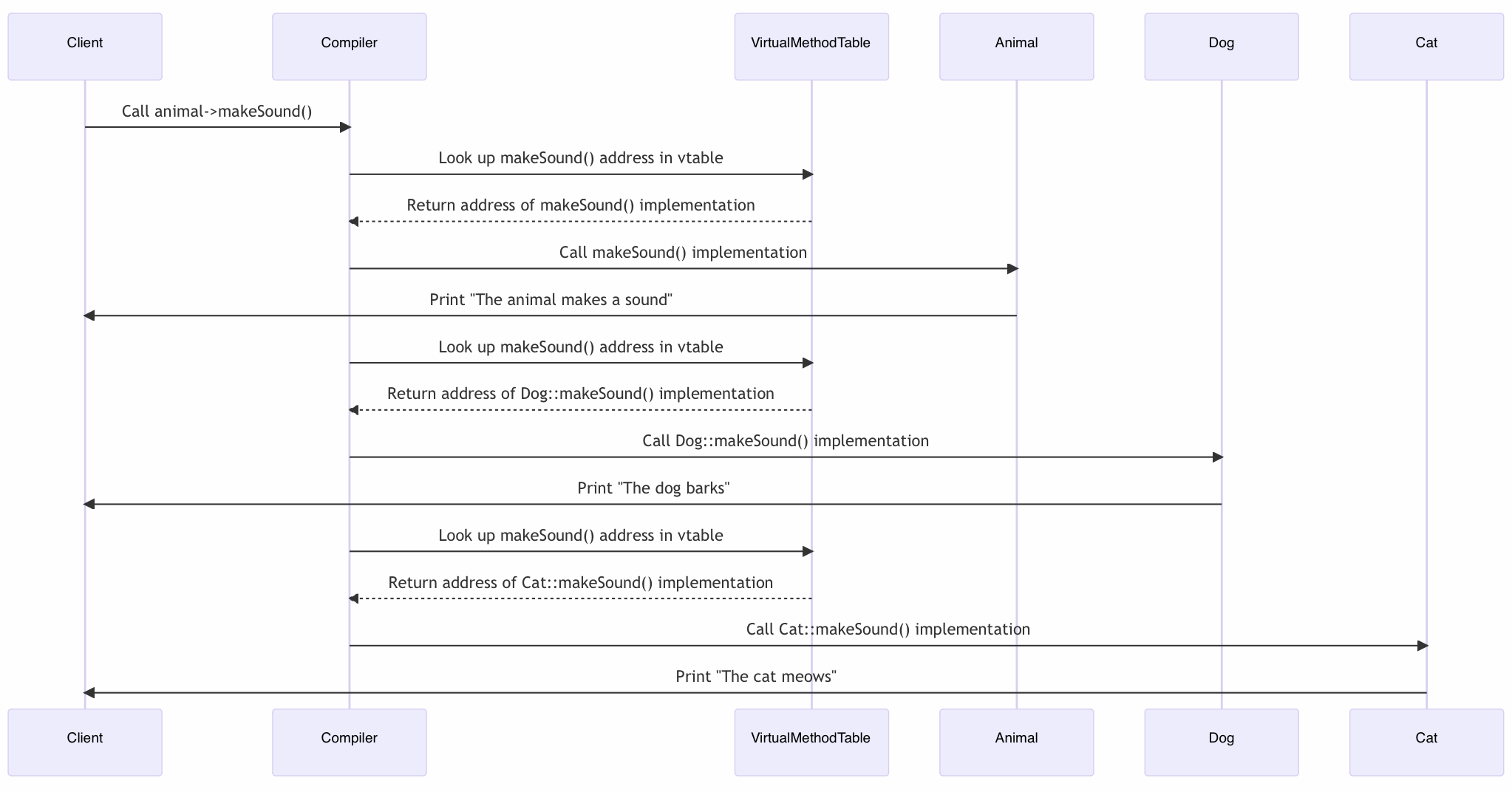Hi! Welcome to a quick no nonsense tutorial on Dynamic Dispatch and Function Overloading. We’ll take a look at how C++ and Rust does it!

Dynamic Dispatch
Dynamic dispatch is a runtime mechanism that allows a program to call a function or method based on the actual type of the object, rather than the declared type of the object. This is achieved through the use of virtual functions and virtual method tables (vtables).
C++ Implementation
In C++, dynamic dispatch is implemented through virtual functions:
class Animal {
public:
virtual void make_sound() = 0; // Pure virtual function
virtual ~Animal() = default;
};
class Dog : public Animal {
public:
void make_sound() override {
std::cout << "Woof!" << std::endl;
}
};
class Cat : public Animal {
public:
void make_sound() override {
std::cout << "Meow!" << std::endl;
}
};
void animal_sounds(Animal* animal) {
animal->make_sound(); // Dynamic dispatch occurs here
}The virtual keyword tells the compiler to use dynamic dispatch. At runtime, the correct make_sound() method is called based on the actual object type.
Rust Implementation
Rust uses trait objects for dynamic dispatch:
trait Animal {
fn make_sound(&self);
}
struct Dog;
struct Cat;
impl Animal for Dog {
fn make_sound(&self) {
println!("Woof!");
}
}
impl Animal for Cat {
fn make_sound(&self) {
println!("Meow!");
}
}
fn animal_sounds(animal: &dyn Animal) {
animal.make_sound(); // Dynamic dispatch occurs here
}The dyn keyword indicates that this is a trait object using dynamic dispatch.
Performance Considerations
Dynamic dispatch comes with a runtime cost:
- Vtable lookup: Extra indirection to find the correct method
- Memory overhead: Storing vtable pointers
- Optimization challenges: Compiler can’t inline virtual calls as easily
When to Use Dynamic Dispatch
Use dynamic dispatch when:
- You need polymorphism at runtime
- The exact type isn’t known at compile time
- You’re working with collections of different types implementing the same interface
Avoid it when:
- Performance is critical and types are known at compile time
- You can use static dispatch (templates in C++, generics in Rust)
Static vs Dynamic Dispatch
Static Dispatch (compile-time):
// Rust - generics provide static dispatch
fn animal_sounds<T: Animal>(animal: &T) {
animal.make_sound(); // Resolved at compile time
}Dynamic Dispatch (runtime):
// Rust - trait objects provide dynamic dispatch
fn animal_sounds(animal: &dyn Animal) {
animal.make_sound(); // Resolved at runtime
}Here’s a sequence diagram illustrating the dynamic dispatch process:

Pretty much the same thing happens in Rust.
Conclusion
Dynamic dispatch is a powerful tool for polymorphism, enabling flexible and extensible code. Both C++ and Rust provide elegant mechanisms for it, though with different syntax and trade-offs. Understanding when and how to use dynamic dispatch is crucial for writing effective systems code in either language.